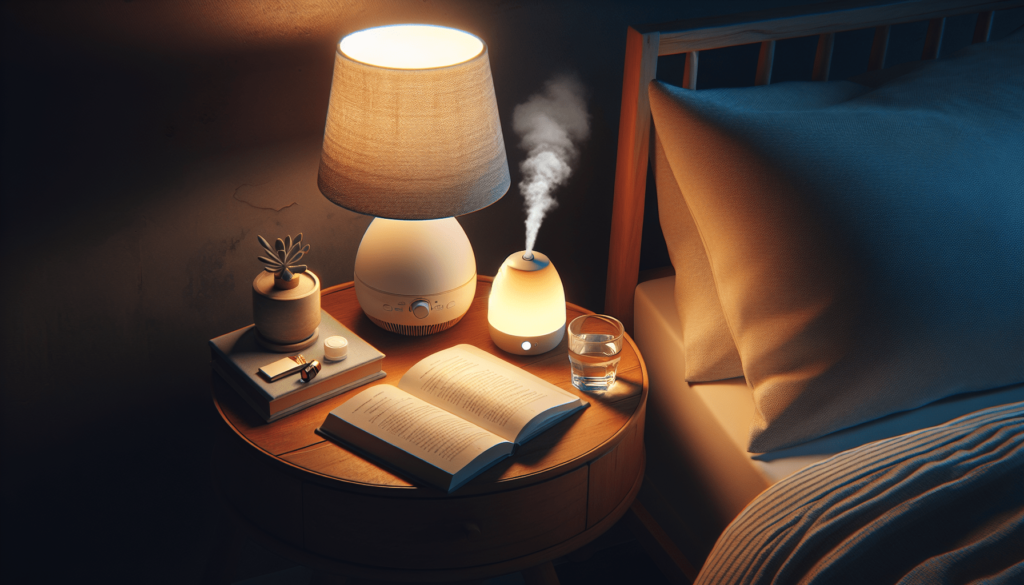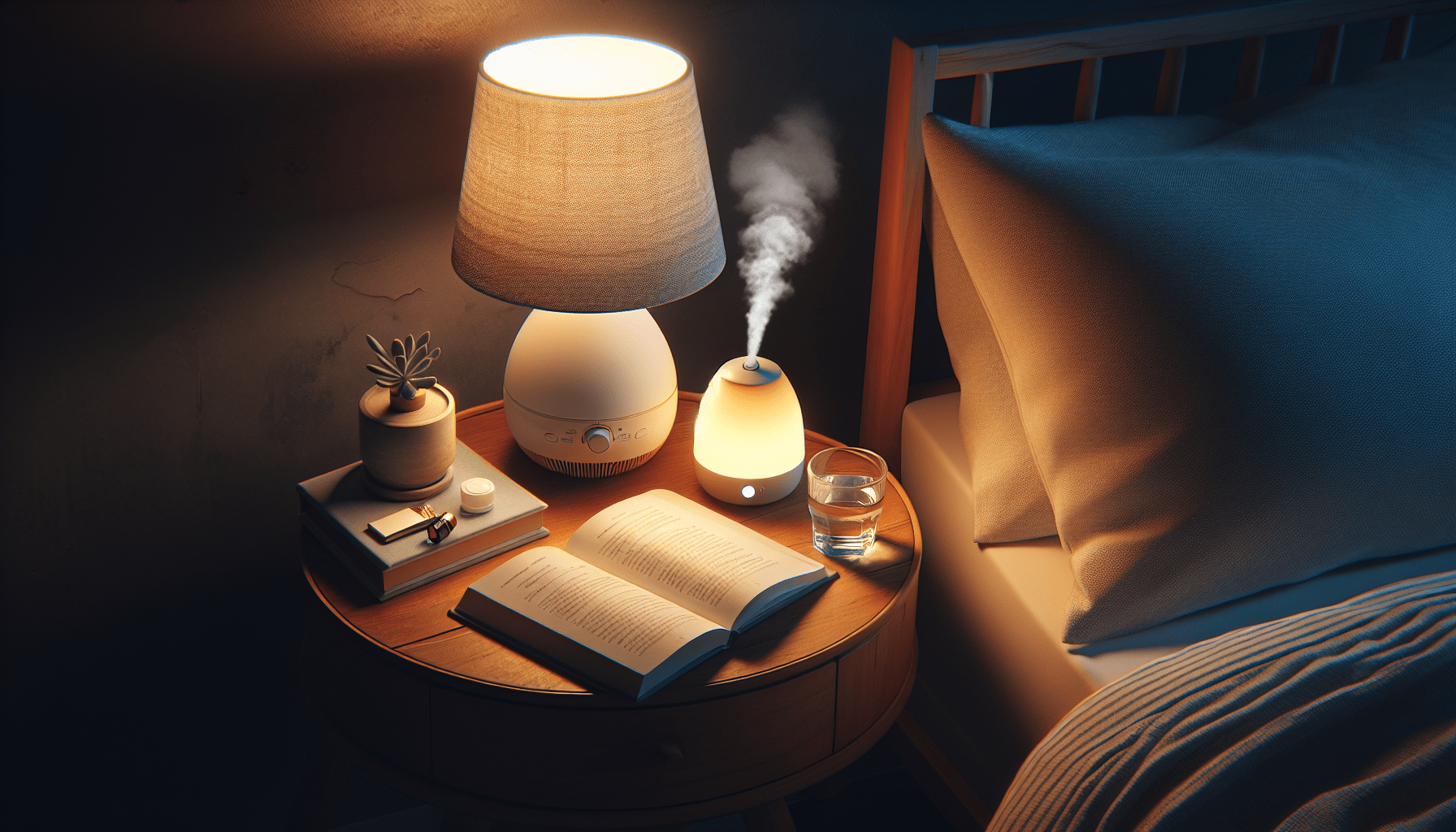Have you been struggling to get a good night’s sleep? A lack of restful sleep can have a significant impact on your overall well-being and productivity during the day. Fortunately, by cultivating a holistic nighttime routine, you can improve the quality of your sleep and wake up feeling refreshed and energized. In this article, we will explore various tips and strategies to help you create a bedtime routine that promotes better sleep.

Understanding the Importance of a Holistic Nighttime Routine
Having a holistic nighttime routine involves more than just going to bed at a regular time. It encompasses all the habits and practices you engage in leading up to bedtime, including your sleep environment, bedtime rituals, and overall mindset. By taking a holistic approach to your nighttime routine, you can address various factors that may be impacting your sleep quality and make positive changes to improve it.
Creating a holistic nighttime routine involves looking at your sleep habits, environment, and mindset comprehensively. This approach can help you identify and address any factors that may be affecting your sleep quality and establish healthy habits that promote restful sleep.
The Impact of Poor Sleep Quality on Your Health
Poor sleep quality can have a significant impact on your overall health and well-being. It can lead to various health issues, including:
- Increased risk of chronic diseases such as heart disease, diabetes, and obesity
- Weakened immune system
- Impaired cognitive function and memory
- Mood disturbances and increased risk of mental health disorders
- Reduced productivity and performance during the day
Considering the far-reaching consequences of poor sleep quality, it becomes essential to prioritize establishing a healthy and holistic nighttime routine to support better sleep.
Creating a Sleep-Inducing Environment
Your sleep environment plays a crucial role in determining the quality of your sleep. Creating a peaceful and sleep-inducing environment can help signal to your body that it’s time to wind down and promote restful sleep. Here are some tips to optimize your sleep environment:
- Opt for a comfortable mattress and pillows: Investing in a quality mattress and pillows that provide adequate support is essential for a good night’s sleep.
- Keep your bedroom cool and dark: The ideal sleeping environment is a cool, dark, and quiet space. Consider using blackout curtains and a white noise machine if necessary.
- Declutter your bedroom: A clutter-free bedroom can help promote a sense of calm and relaxation. Keep your sleeping space neat and organized.
- Limit noise and distractions: Minimize noise and distractions in your bedroom that may disrupt your sleep. Consider using earplugs or a white noise machine to block out unwanted sounds.
By creating a sleep-inducing environment, you can set the stage for a restful night’s sleep and help your body relax and unwind.
Establishing a Consistent Bedtime Routine
A consistent bedtime routine can help signal to your body that it’s time to wind down and prepare for sleep. By following a regular routine each night, you can establish healthy sleep habits that promote better rest. Here are some tips for creating a bedtime routine:
- Set a consistent bedtime: Aim to go to bed and wake up at the same time each day, even on weekends. Consistency can help regulate your body’s internal clock and improve your sleep quality.
- Develop a relaxing bedtime ritual: Engage in calming activities before bed, such as reading, meditating, or taking a warm bath. Establishing a relaxing routine can help signal to your body that it’s time to sleep.
- Avoid electronics before bed: The blue light emitted by electronic devices can interfere with your body’s production of melatonin, a hormone that regulates sleep. Limit your screen time before bedtime to promote better sleep.
- Avoid caffeine and heavy meals late in the evening: Consuming caffeine or heavy meals close to bedtime can disrupt your sleep. Opt for a light snack if you’re hungry before bed and avoid caffeine in the afternoon and evening.
By establishing a consistent bedtime routine, you can create a sense of predictability and calm that can help improve your sleep quality.
Practicing Mindfulness and Stress Reduction Techniques
Stress and anxiety can significantly impact your ability to fall asleep and stay asleep. Practicing mindfulness and stress reduction techniques before bed can help calm your mind and promote relaxation. Here are some strategies to incorporate mindfulness into your bedtime routine:
- Practice deep breathing: Deep breathing exercises can help calm your nervous system and reduce stress. Try taking slow, deep breaths in through your nose and out through your mouth before bed.
- Mindful meditation: Spend a few minutes practicing mindfulness meditation before bed to quiet your mind and release tension. Focus on your breath or a calming mantra to help relax your body and mind.
- Progressive muscle relaxation: Tense and relax each muscle group in your body, starting from your toes and working your way up to your head. This technique can help release physical tension and promote relaxation.
Incorporating mindfulness and stress reduction techniques into your bedtime routine can help quiet your mind, reduce stress, and prepare your body for sleep.

The Role of Nutrition in Promoting Better Sleep
Your diet and nutrition can also play a significant role in your sleep quality. Making healthy food choices and avoiding certain foods and beverages close to bedtime can help support better sleep. Here are some nutrition tips to promote restful sleep:
- Limit caffeine and alcohol: Caffeine and alcohol can disrupt your sleep cycle and lead to poor sleep quality. Avoid consuming these substances close to bedtime.
- Choose sleep-promoting foods: Certain foods can help promote sleep, such as almonds, walnuts, cherries, and kiwi. Incorporate these foods into your diet to support better sleep.
- Avoid heavy, spicy, and acidic foods: Eating heavy, spicy, or acidic foods close to bedtime can lead to indigestion and disrupt your sleep. Opt for lighter meals in the evening to support better digestion and sleep.
By making mindful food choices and avoiding certain foods and beverages close to bedtime, you can help support your body’s natural sleep-wake cycle and promote restful sleep.
Embracing Technology to Enhance Your Sleep Routine
In today’s digital age, technology can play a valuable role in helping you improve your sleep quality. From sleep tracking apps to smart home devices, there are various tech tools available to help you optimize your bedtime routine. Here are some ways technology can enhance your sleep routine:
- Sleep tracking apps: Use sleep tracking apps to monitor your sleep patterns, analyze your sleep quality, and identify areas for improvement. These apps can provide valuable insights into your sleep habits and help you make changes to enhance your sleep.
- Smart light bulbs: Consider using smart light bulbs that can adjust the color and intensity of light in your bedroom to promote relaxation and sleep. These bulbs can mimic natural light patterns to support your body’s circadian rhythm.
- White noise machines: White noise machines can help block out background noise and create a calming sleep environment. These devices can mask disruptive sounds and help you fall asleep and stay asleep more easily.
By leveraging technology to enhance your sleep routine, you can take advantage of innovative tools and resources to support better sleep and overall well-being.
The Importance of Regular Exercise for Better Sleep
Regular exercise has been shown to have numerous benefits for sleep quality. Engaging in physical activity can help reduce stress, improve mood, and promote relaxation, all of which can contribute to better sleep. Here are some tips for incorporating exercise into your routine to support better sleep:
- Choose activities you enjoy: Find physical activities that you enjoy, whether it’s yoga, walking, cycling, or dancing. Engaging in activities you love can make exercise feel like a rewarding and enjoyable experience.
- Establish a regular exercise routine: Aim to exercise regularly, ideally at least 30 minutes a day, most days of the week. Consistency is key when it comes to reaping the benefits of exercise for sleep.
- Avoid vigorous exercise close to bedtime: Intense exercise before bed can stimulate your body and make it difficult to fall asleep. Try to schedule your workouts earlier in the day to allow your body time to wind down before bedtime.
By making regular exercise a priority in your routine, you can experience the many benefits it offers for better sleep and overall health.
Seeking Professional Help for Persistent Sleep Issues
If you continue to struggle with poor sleep despite making changes to your bedtime routine, it may be beneficial to seek professional help. A healthcare provider or sleep specialist can help identify any underlying sleep disorders or health conditions that may be affecting your sleep quality. Here are some signs that it may be time to seek professional help for your sleep issues:
- Persistent insomnia: If you regularly struggle to fall asleep or stay asleep, and this issue persists despite your efforts to improve your sleep routine.
- Excessive daytime sleepiness: If you feel excessively tired during the day, even after a full night’s sleep, this may be a sign of a sleep disorder such as sleep apnea or restless legs syndrome.
- Loud snoring or irregular breathing: If you or your partner notice loud snoring, gasping for breath, or pauses in breathing during sleep, this may indicate a sleep disorder that requires medical attention.
By consulting with a healthcare provider or sleep specialist, you can receive an accurate diagnosis and appropriate treatment for any underlying sleep issues that may be impacting your quality of rest.
Conclusion
Incorporating a holistic approach to your nighttime routine can have a profound impact on your sleep quality and overall well-being. By creating a sleep-inducing environment, establishing a consistent bedtime routine, practicing mindfulness and stress reduction techniques, making healthy nutrition choices, leveraging technology to enhance your sleep routine, incorporating regular exercise, and seeking professional help when needed, you can cultivate habits that promote restful sleep and wake up feeling refreshed and rejuvenated. Prioritizing your sleep health is a valuable investment in your overall wellness, so embrace these tips and start cultivating a holistic nighttime routine for better sleep.

